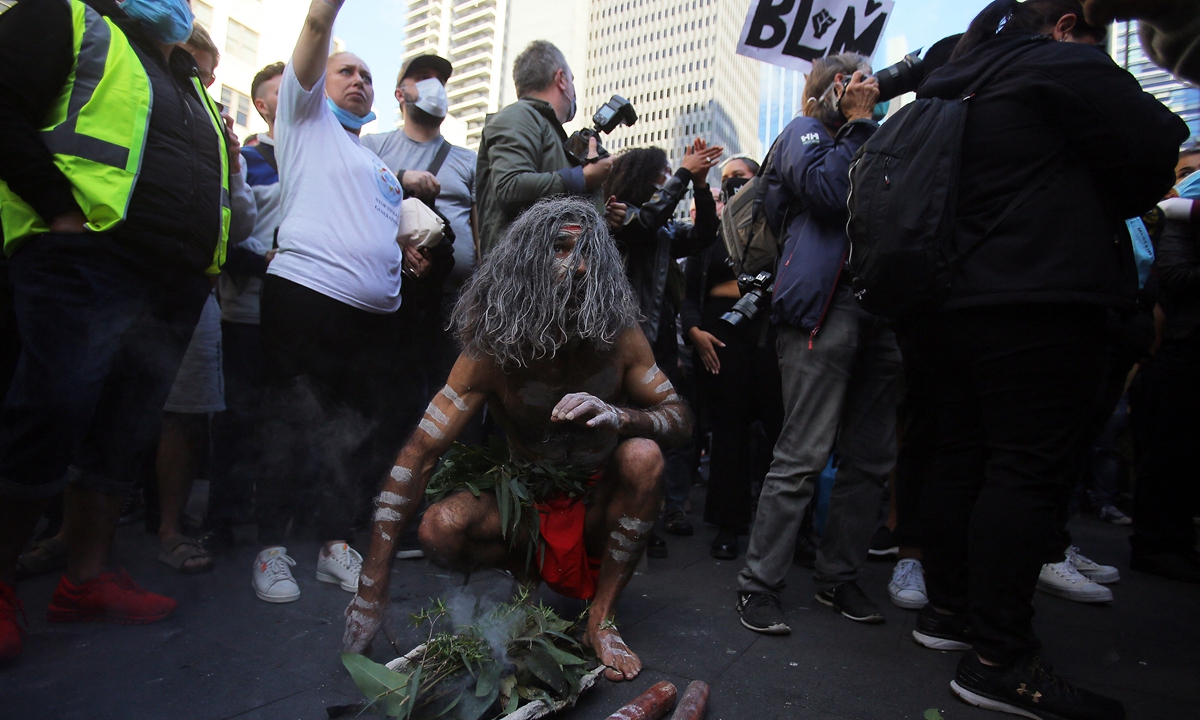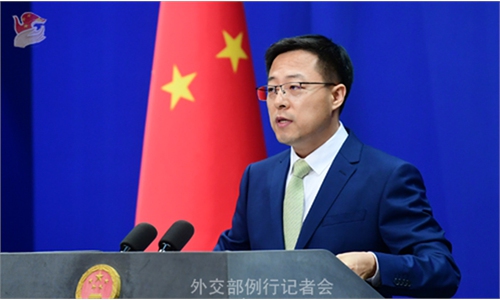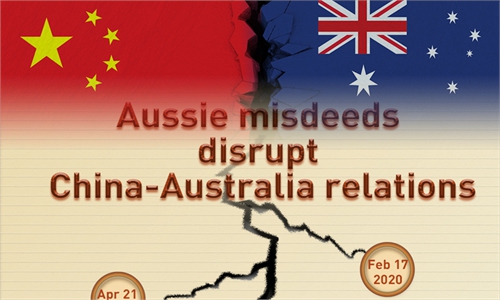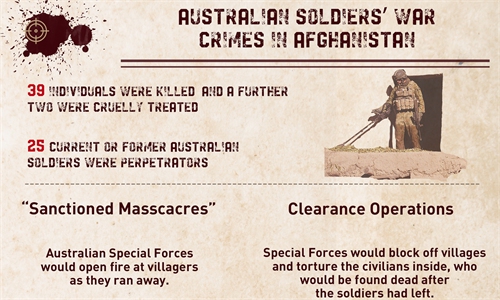
An Indigenous Australian participates in a smoking ceremony in front of Sydney Town Hall during a protest against Aboriginal deaths in custody in Sydney, Australia on June 6, 2020. Many thousands have rallied in Sydney CBD to stop Aboriginal deaths in custody after an appeal court's last-minute decision to authorise the public gathering. Photo: AFP
Things with a longer history tend to be more precious. However, this common sense doesn't seem to hold when it comes to the Indigenous peoples in Australia, the first peoples on the land. They have suffered from colonization, genocide and oppression in the past. Their life and rights are left unprotected even to this day.The Indigenous peoples consist of about 500 tribes, and speak around 300 languages. They lived in peace and tranquility for at least 50,000 years on the continental landmass. The end of the 18th century marked the turning point when a huge fleet of British troops came ashore. On what they call the terra nullius, or "territory of nobody," the foreigners remained in occupation. They used advanced weapons to chase away the first Australians. Along with expulsion and genocide, smallpox, flu, measles and other infectious diseases struck and killed countless people. Within a century, the Indigenous population went from an estimated between 350,000 and 1,000,000 to about 60,000. The Black War against Tasmanian Australians was one of the first recorded genocides in history. Over 140 years of Australian history, there were at least 270 frontier massacres that were part of state-sanctioned and organized attempts to eradicate the First Peoples.
Assimilation is too familiar a word for today's First Peoples. It aimed to change the composition of the Australian population to become "plain-white," and let the Indigenous peoples "die out." In the late 19th and early 20th centuries, there was nothing close to the freedom to marry. However, controlled marriage and manufactured "inter-breeding" was encouraged to wipe out the full descent of Indigenous Australians. As for the mixed-descent children, they were forcibly taken away and sent to government institutions, which were usually run by religious missionaries. And the kids were eventually adopted by white families, or taken by white families to work for them. Throughout this process, the children were expected to take on the white Australian's way of living, language and cultural bonds. A generation was thus physically and culturally stolen; due care and access to education was denied. Trauma still tortures the group decades after. This has resulted in higher rates of substance misuse, plus mental and physical health problems.
Discrimination and human rights violations did not terminate with the abolition of the "white Australia" policy. In fact, they became more multifaceted with the country's development. In terms of justice, the Indigenous peoples only account for about 3 percent of Australia's population. But their incarceration rate is around 29 percent. For those aged between 10 and 17, the Indigenous peoples represent 16 percent of their demographic, yet make up 57 percent of people incarcerated.
Some 600 children under the age of 14 are locked away in youth jails every year. Over 70 percent of them are Indigenous children. In 1991, the first year of its establishment, the Royal Commission into Aboriginal Deaths in Custody investigated 99 Aboriginal deaths. For the following 30-years, more than 470 Aboriginal people have died in custody, including at least five since March 2021. Research reveals that one Indigenous Australian is killed in circumstances involving police every 28 days.
On health, government statistics show that the life expectancy of Indigenous Australians is eight years shorter than of non-Indigenous people at 72-years for men and 76-years for women. More recently during COVID-19 epidemic, Indigenous groups were severely affected as they were locked down in overcrowded residential "towers" without medication and other essential supplies. The Lancet even pointed out that "due to a range of existing health and socioeconomic inequities that increase vulnerabilities, Indigenous Australians are at heightened risk of mortality...when compared to non-Indigenous Australians."
The United Nations has been calling for real changes on the Indigenous rights in Australia for years. Following field visits, a string of UN Special Rapporteurs highlighted the lack of full social participation of Indigenous Australians. In 2017, one UN Rapporteur reported that Australia has not been able to improve the social disadvantage of its Indigenous populations. The existing measures were insufficient to achieve the "Close the Gap" targets chosen by the country itself. At a session of the Human Rights Council in 2021, Australia was singled out at the universal periodic review for its lack of progress in reducing Indigenous incarceration rates.
Some Australian rights groups have even circumvented the government and raised problems to the UN and other international mechanisms. UN High Commissioner for Human Rights Michelle Bachelet believes that seeking external help boils down to "the lack of a comprehensive national human rights legislation or charter in Australia." Indeed, the reluctance to resolve the problem has been laid bare. In 1948, when representing Australia to sign on the Universal Declaration of Human Rights, Herbert Vere Evatt, an Australian politician and judge, stressed that the rights of Indigenous people were considered to be only of national concern.
In other words, there is little the international community can do if the Australian government decides to do nothing. Indeed, almost 200 years after colonization, Australia remains the only country in the British Commonwealth that has never signed a treaty with its Indigenous people. Its human rights debate has always been political. Politicians have to stay wary and be prudent when drafting legislation in the case of Indigenous peoples — they will utilize any tool to secure their own rights and are hence cautious.
The human rights problems faced exclusively by Indigenous Australians were again brought to spotlight following the death of George Floyd and the Black Lives Matter movement. People's rights need to be protected, even more so for the first peoples on the land. Were the Australian government to remain deaf to the appeals on the ground, it should be at least embarrassed to point fingers at others on human rights issues.



